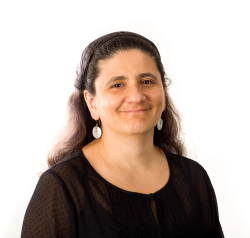Along with other transgender women (i.e., those assigned a male sex at birth, but who identify as female) of color, Latina transgender women (LTW) in Washington DC are heavily impacted by HIV. Findings from my ongoing study with LTW indicate that Pre-Exposure Prophylaxis (PrEP; a daily pill that can help prevent HIV) is widely known among this group: only 4 out of 62 participants were unaware of its existence. Less than half, however, reported having ever used PrEP. Moreover, among those who ever start PrEP, many abandon the treatment after a few months. Many LTW in my ongoing study identified having to take a daily pill as an important barrier for PrEP use and adherence. Thus, the present study seeks to assess whether non-daily PrEP alternatives might be a more feasible and acceptable approach for this population. A limitation of non-daily PrEP is that it requires that users have sex less than 3 times per week. They must also be able to know beforehand if sex will occur, as they need to take a pill between 2 and 48 hours before having sex. For this study I will invite 50 LTW in the DC area to complete a cellphone-assisted survey every other day over 3 months (in 3 bi-weekly waves) to report if they have had sex in the previous 48 hours and think they will have sex in the following 48 hours. Two weeks after the last wave, 30 LTW selected from the previous phase will be invited to an in-person interview to assess PrEP preferences and perceptions about barriers and facilitators of non-daily PrEP use. Once data collection and analysis are completed, I will convene 3 regional community forums to report findings back to the community and receive feedback and ideas regarding the development of an intervention to promote PrEP among LTW. As a researcher, I recognize that the expertise about the experiences of LTW lies within the LTW community. As such, I will continue to rely heavily on the members of the community advisory board (CAB) of my ongoing study, who have agreed to continue supporting me should this new project be funded. CAB members will advise and provide feedback on all study phases, assist with recruitment and support and challenge the research team’s assumptions and interpretations of the findings. Both research participants and CAB members will receive financial compensation for their participation.
Pilot Award Recipient: Ana María del Río-González, PhD, MA
Feasibility and acceptability of non-daily PrEP regimens among Latina transgender women in DC
April 15, 2020


